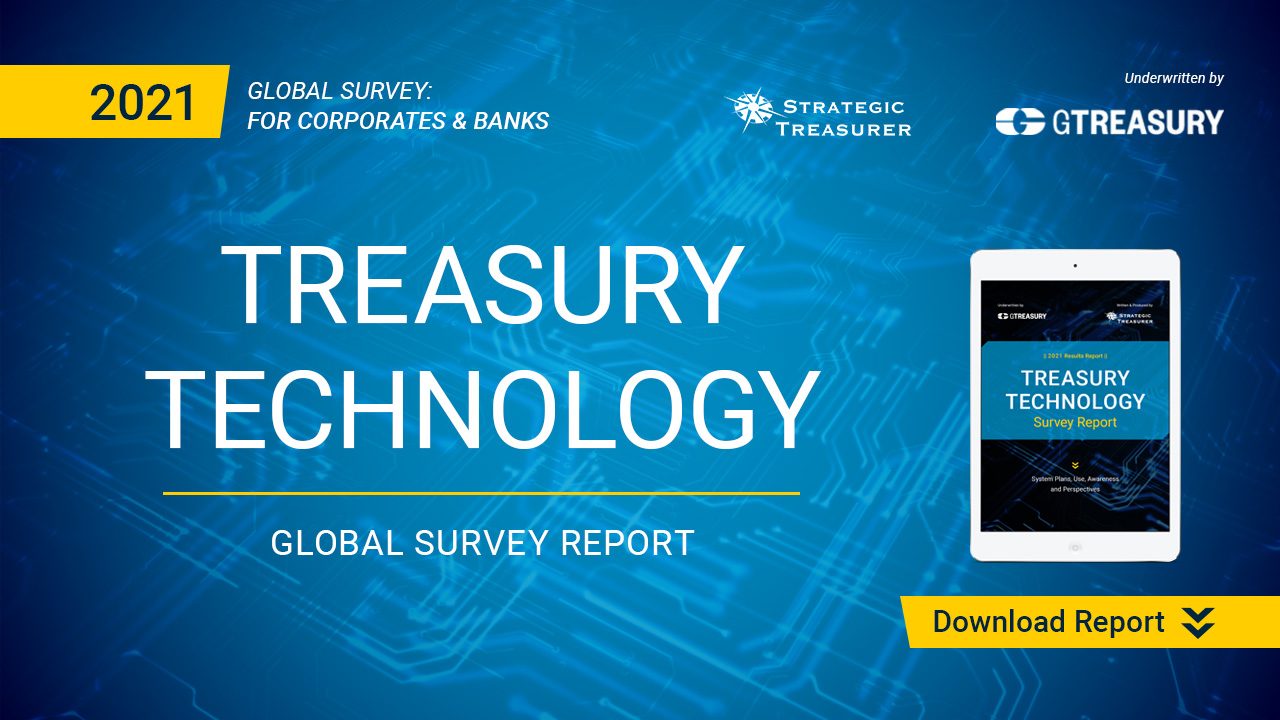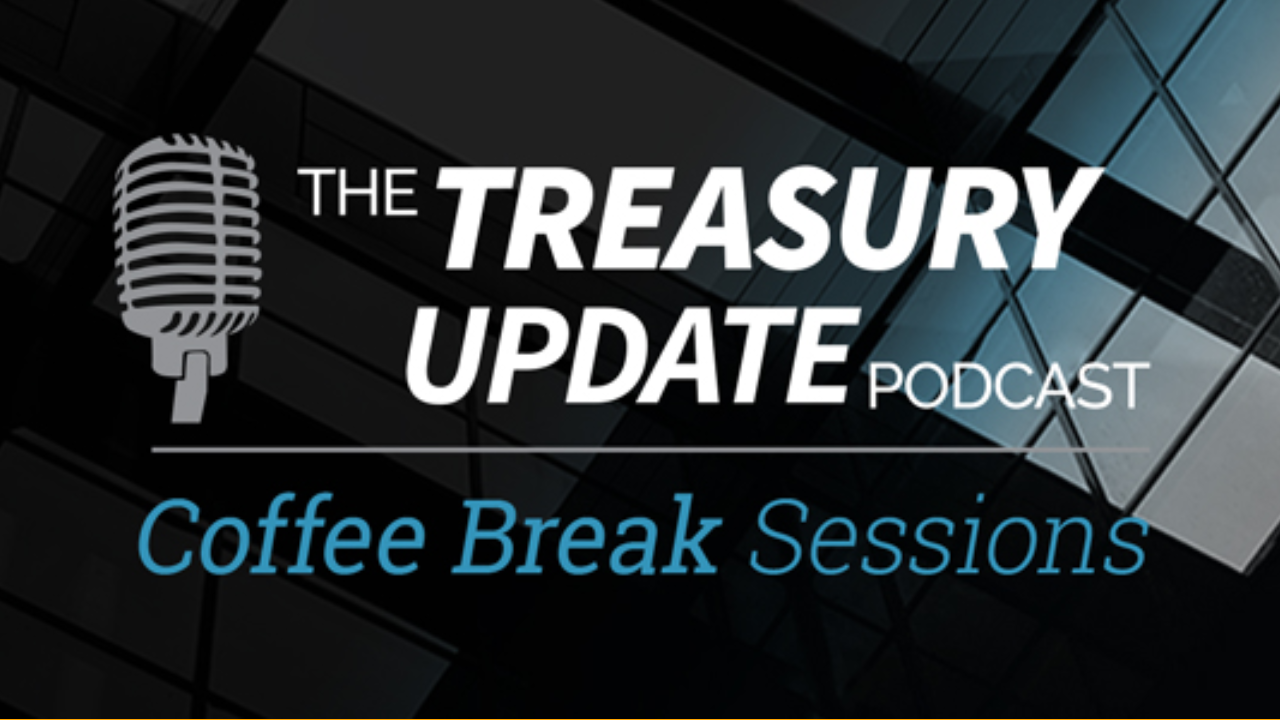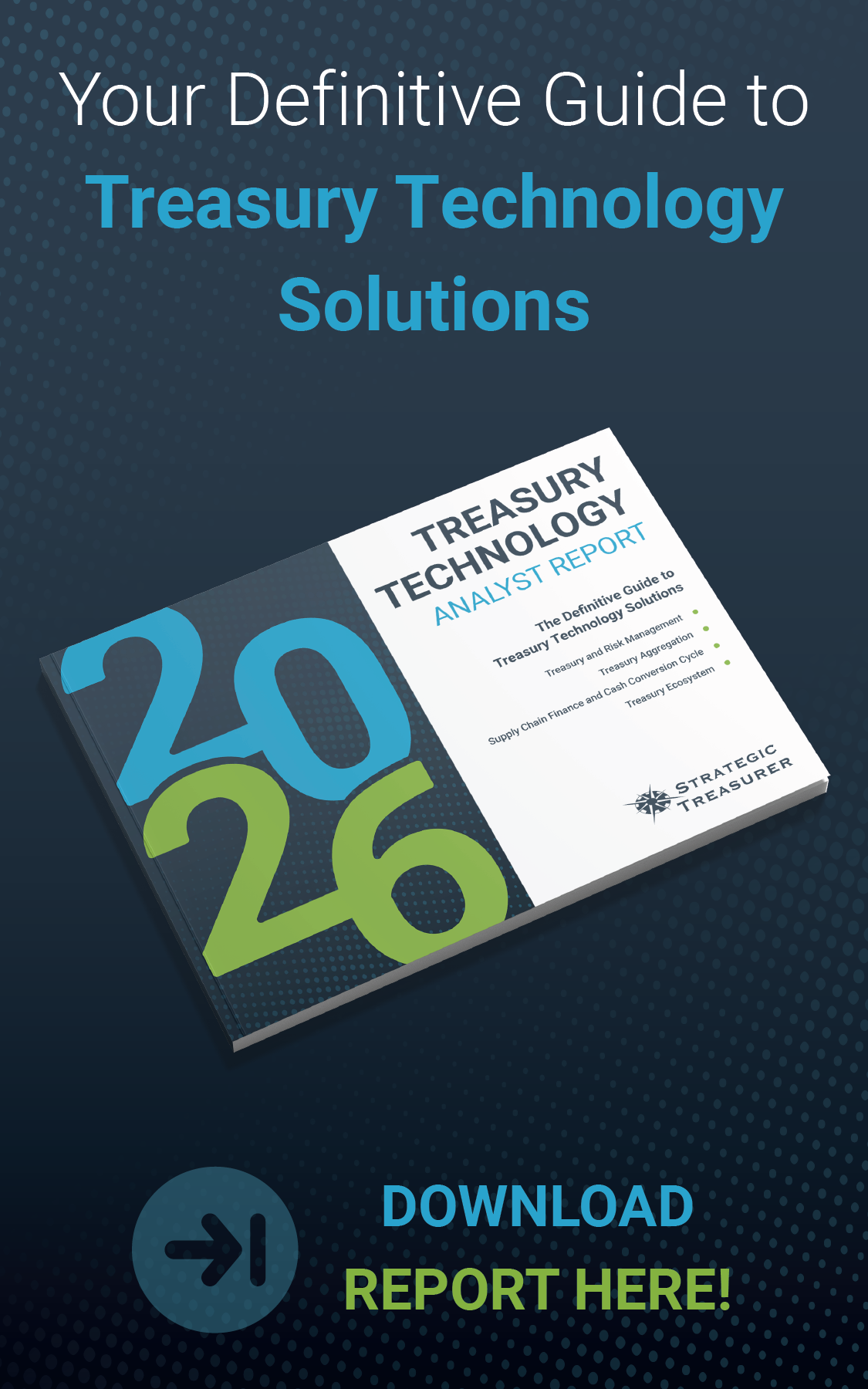
Session 58
Coffee Break Session:
What Is Cash Flow?
What is cash flow? Coffee Break Session Host Alexa Cook catches up with Strategic Treasurer’s Managing Partner, Craig Jeffery to discuss cash flow. They discuss what cash flow is, and how it can be leveraged. Listen in and learn a little bit about cash flow.
Host:
Alexa Cook, Strategic Treasurer


Speaker:
Craig Jeffery, Strategic Treasurer


Episode Transcription - (Coffee Break Session Series) - Episode 58 - What is Cash Flow
Alexa Cook 0:04
Welcome to The Treasury Update Podcast Coffee Break session, the show where we cover foundational treasury topics and questions in about the same amount of time it takes you to drink your coffee. This is your host Alexa and today I’m joined by Craig Jeffrey Managing Partner of Strategic Treasurer. Welcome back, Craig.
Craig Jeffery 0:22
Hey, it’s good to be back, Alexa.
Alexa Cook 0:24
So, today we’re going to just jump right in, I guess and cover What is Cash Flow? So Craig, what is cash flow?
Craig Jeffery 0:30
The best way to think about what is cash flow? It’s the use and availability of liquid assets which would be referred to as cash on a regular basis to the operation of the business or through investment or capital activity.
Alexa Cook 0:48
Okay, that I guess kind of leads into the next question, which was, are there different types of cash flows?
Craig Jeffery 0:53
Yeah, there are for those who love accounting, accounting oftentimes refers to them as operating investment and financing or capital related activities. So, operating would be the core business. Investment and financing would be touching other parts that aren’t part of their core business from, let’s say, raising capital outside the business or your investment activity. But not everyone loves accounting, but treasury oftentimes breaks these things out in much the same way. They may look at cash flows, they may break out operating for example, quite differently for collection and disbursement activity and then investment, borrowing and break it out different ways. But however, you create your higher hierarchy of the cash flows, it’s fairly similar and other people have different classifications, but that’s some of the ways of doing it. Others break out their cash flows by consistency, reliability of them, and break them out that way, but I guess there’s no one single way to do that.
Alexa Cook 2:02
Okay, that’s great. Is cash flow different than revenue?
Craig Jeffery 2:05
Yes, certainly. So, it could because cash flow as both and in an outbound aspect, it would be different than revenue, per se. So, oftentimes, whether you’re looking at sales or revenue, some of the different classifications or that would be the inbound side of the operating breakout of cashflow. So, it is different. I think the other thing that’s different is we have to think about accounting and liquid cash or cash differently. And I know you probably don’t want me to go into too much accounting, but you know, the majority of companies, certainly the majority of publicly traded companies use accrual-based accounting, and that’s certainly different than revenue or than income. There are companies that use cash-based accounting, and while that still have some differences, it’s not as great as the differences that you might have an accrual based system. I can explain that a little bit, but I know you have a lot of questions so I’m sure.
Alexa Cook 3:12
Then the next question is why is cash flow important?
Craig Jeffery 3:15
Cash flow is important because liquidity and solvency is crucial. People say cash is king. Cash flow is king as well. So, this idea of liquidity and solvency. Do I have the cash available to meet my needs as they come through? Are the cash available to address all of the liabilities and pay things when they come due? Is is vital. It’s not the same as income. You can have a business that is making great income from an accounting perspective. But that doesn’t match the cash flow and that can become a crisis point or an insolvency point, based on how income is calculated versus managing cash flow and the sum of the two the two competing elements and disciplines of treasury versus accounting, financial analysis and financial reporting. So, that’s where some of the differences come into play. But if you don’t have liquidity, or solvency you cease doing business, even if you can show income on the books.
Alexa Cook 4:25
Right, that makes sense, and that really kind of sets me up for the next question, which is what is cash flow analysis?
Craig Jeffery 4:31
I think that’s probably a awesome question for a much longer discussion, but I’ll try to be brief and by being brief I’m going to leave off a lot of items here so for all those here looking for extremely detailed response don’t get mad. I would define it this way for a short answer is cash flow analysis is the discipline of reviewing the cash flowing in and out of your organization with a mind towards liquidity management. So, this is when I think about that as if you’re doing cash flow analysis and you’re a CFA and you’re looking at evaluating companies or organizations, you would have to make adjustments for capex and depreciation, right? Someone spends a ton of money on equipment, but it’s depreciated over five years, for example, while they had a huge outflow of cash in year one, but you have to add back the depreciation that is reducing income in year 2, 3, 4, and five, the first year they spent that they had a huge cash outflow that was way more than what they spent from an expense standpoint, because they can only count let’s say, 1/5 of the expense each year. And so those items have adjusting for how we accrue from an accounting perspective is useful to make those types of adjustments. So, what that means is, you prepay for subscriptions, for example, well, they may roll out those expenses over time, but you have to add that back in for what cash you’re gonna have when you look at all of your operating flows and projections. Accrual accounting is based upon the concept of the matching principle that if I buy an asset and has a useful life, I should treat those expenses in a way that links up with the income that I generate from those assets and that makes perfect sense from an accounting standpoint. But it certainly doesn’t flow from a liquidity or cash flow perspective. So, there’s a difference there. I spent all this money up front, but I’m using that asset to generate income over time and so it’s a way of, of tracking that providing stability of flows and supporting general accepted accounting principles and principles that you know, that are contained in that set of principles. I think the other aspect of applicability for cash flow analysis, Alexa is you may you may be growing, you say what is my … I need to do a cash flow analysis because we’re growing in a particular country, let’s say, somewhere in Europe that has very long payment terms. And you can grow very rapidly, but your receivables might be stretched out. Let’s just say they’re stretched out to 90 days. You’re paying, you know, in 30 days, but you’re collecting funds in 90 days. When you have disproportionately fast growth, you’re gonna have an extension and your receivables grow faster than your…then is reflective of the income that’s growing and so that’s going to create a drain on cash until you reach stability and then it will come in evenly. But life is not exactly even all the time. And so when these numbers are off a bit or different, they can create an extra drain on cash or use of cash. And now we have great income but now we’re having to pour cash into the area to fund it. So, cash flow analysis helps us plan for things more closely more properly and helps us avoid a number of these surprises.
Alexa Cook 8:24
That was a great, shortened version of what that was. Thanks, Craig. So, then just to do a quick recap of What is cash flow? It’s really the use of the availability of liquid assets. So that might be predominantly cash. There are different types there’s operating, investing, and financing from an accounting perspective. And then why is cashflow important? It’s really important because liquidity and solvency are crucial. Cash is king as we’ve said, and it really helps to determine if the cash is there to meet a company’s needs. And then I really liked how you described the cash flow analysis which was the discipline of reviewing the cash flowing in and out of the organization. So, I think he said that, you know, you could have the sales or the revenue there, but you know, if you’re not reviewing what or how the cash is actually flowing, then you might not be in as good of a place as you thought you were in. So, it’s really the planning for things. I don’t know if you want anything else for that, Craig.
Craig Jeffery 9:16
I like your summary Alexa, thank you. Thank you for talking about that today.
Alexa Cook 9:20
Yeah, thanks for joining me today, Craig. And then thank you to all of our listeners for tuning in and make sure you join us back every first and third Thursday of the month for a new episode. And as always, we love hearing from you. So, if you want to send us an email with questions, comments, or you know any feedback, we’d love to hear it you can do that at podcast@strategictreasurer.com. Thanks again Craig.
Craig Jeffery 9:39
Thank you Alexa.
OUTRO 9:45
This podcast is provided for informational purposes only, and statements made by Strategic Treasurer LLC on this podcast, are not intended as legal, business, consulting, or tax advice. For more information, visit and bookmark strategictreasurer.com.




